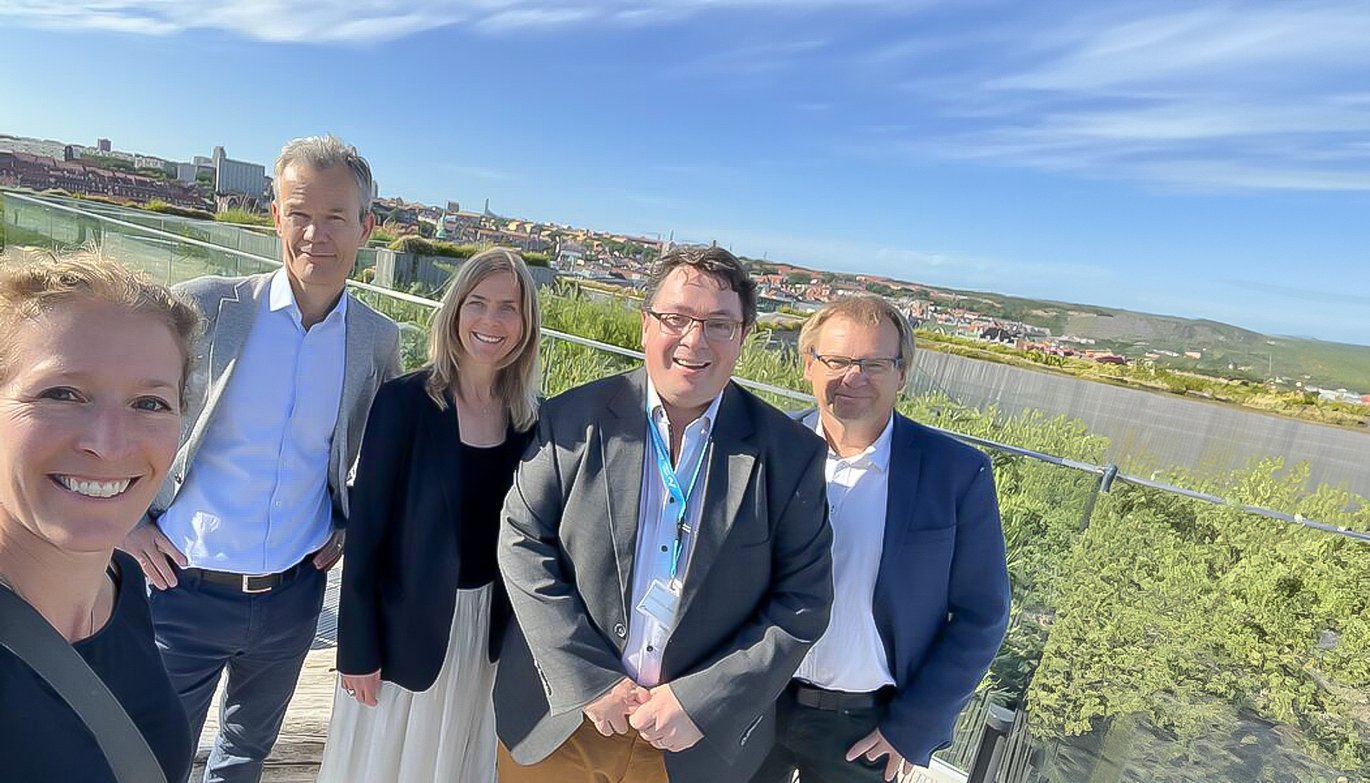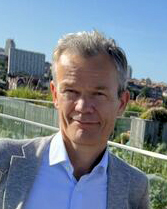International top researchers assess Biomedicine
As the first department at Health, Biomedicine has hosted an external evaluation panel to assess research quality. Read here to find out how it went.

How can we improve even further?
All departments at Health will be visited by an external panel over the next six months.
Following the panel’s feedback, the department head must develop an action plan.
The departments themselves have established the external panels based on criteria from the faculty's steering group for research evaluation — such as requirements for experience, academic breadth, impartiality, and balance in terms of gender, age, and institutional diversity.
Panel members are provided in advance with a comprehensive dataset and a self-evaluation prepared by the department leadership as part of the overall research evaluation.
Upcoming panel visits
- September 23-24, 2024: Department of Forensic Medicine
- October 7-9, 2024: Department of Public Health
- October 28-30, 2024: Department of Dentistry and Oral Health
- January 27-29, 2025: Department of Clinical Medicine
Leading up to January 2025, all departments at Health will be visited by an external evaluation panel to explore the development opportunities within the department's research. This initiative is part of the faculty's overall evaluation of research quality.
The Department of Biomedicine was the first to host such an evaluation panel, and department head Thomas G. Jensen provides a brief overview:
What would you highlight from the panel visit?
Many staff members were involved in the preparations and the panel's visit. There was a good atmosphere throughout, and a strong willingness to talk about our department.
I’m pleased that the panel could sense the essence of the department they visited. From the discussions, it was clear that they understood the issues, and I can see in the report that they touched on some of the key areas that matter to us.
Did any of the panel's feedback surprise you?
Some of the recommendations might be more directed at higher levels, such as questions about job categories and how much we should influence research policy in Denmark. However, all the feedback is relevant and provides food for thought.
Is there anything you disagree with?
No, but of course, some tasks are easier to start than others. I’m glad that the panel suggested focusing on a clearer research strategy — this is something we are eager to pursue, though it is also a challenging task.
What were you most pleased to hear?
I’m glad the panel noted that we have a good collaborative environment, that we are well-organized, and that we have ambitious goals.
I was also pleased that the panel recognized our focus and success in both research and innovation. It’s always encouraging when a panel of skilled and respected external experts say positive things about us. However, they were also good at pinpointing the sensitive areas. For instance, there were discussions about the four research themes the department is divided into and the various challenges they face.
What have you gained from the research evaluation so far — from the department's self-evaluation and the panel visit?
I’ve been reassured that the Department of Biomedicine is a great place to work, and that we have skilled and ambitious people on our team.
At the same time, I’ve been challenged to be more precise about our long-term goals. It has been a substantial effort to prepare for the panel visit and draft the self-evaluation report, but I’m glad we prioritized it highly.
What will the process be for the action plan you need to develop?
One of the most important things is that we have enough time, so we can involve as many staff members as possible to achieve the best possible outcome. I estimate that we have about six months for the process.
I have the first meeting with the research theme coordinators soon, where we will look at how to organize the process. We aim to set goals that look far into the future—what are our dreams, what are our visions, and what are we working towards in the long term?
The external panel visited the Department of Biomedicine on June 24-25, 2024, and the panel’s evaluation has subsequently been sent to all department staff.
"It’s Like Holding an Employee Development Review for the Department"

Professor Kristian Helin from The Institute of Cancer Research in London chaired the evaluation panel at the Department of Biomedicine.
What do you think about the idea of evaluating research quality at the department level?
It’s a good idea, which primarily provides the department with two things:
It allows for an internal review and an overview. You could call it an employee development review (MUS) for the department. What works, and what doesn’t?
Additionally, it facilitates an internal discussion about strategy and how the department organizes itself moving forward.
What did you think of the way the visit was conducted?
It worked well with a tight schedule, and the background material was thoroughly prepared. We were familiar with the department’s goals, strategy, and organization when we arrived.
What could the panel contribute?
First and foremost, the panel is part of a process that provides an overview and an opportunity to take stock.
It would be somewhat arrogant to say that we can do better than those who lead the department, as they understand the underlying issues and work with them daily. However, we offer an external perspective and a high-level view that quickly identifies some of the challenges and opportunities to develop the research framework further.
Why weren’t you more critical?
We can certainly see where the challenges lie and where things could be improved compared to today. But it’s not our role to focus on the details.
As a panel, we articulate challenges and potentials on broader lines, which gives the department and faculty additional legitimacy to act on these issues.
This text is based on machine translation